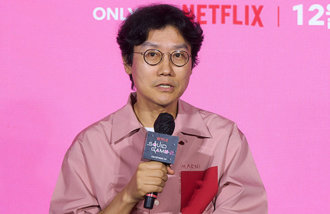Psychologist Ekman Uncovers the Art of Lying
Psychologist Ekman Uncovers the Art of Lying
Posted April. 17, 2007 08:05,
Honorary Professor Paul Ekman, 73, of the University of California at San Francisco, visited Korea for the first time to take part in a special symposium held by the Korean Psychology and Law Association and Hallym Applied Psychology Institute sponsored by Dong-A Ilbo on Monday. The title of the symposium was Finding Lies and Truth.
Professor Ekman is a world-renowned pundit who gained fame for his study on telling whether someone is lying and telling how someone is feeling just by looking at his or her facial expressions. In 1978, he developed the Facial Action Coding System (FACS), the first map that categorized facial movements.
Professor Ekman now works for agencies like the Federal Bureau of Investigation (FBI) and the Central Intelligence Agency (CIA) and advises them on reading the expressions and psychological states of crime suspects and terrorists. The Korean version of his book Emotions Revealed came out last year, and the Korean version of his book Telling Lies came out in 2001.
Professor Ekman visited the Dong-A Media Center in Seoul to give us an interview just before the symposium on Monday. Professor Cho Eun-gyeong of the Department of Psychology at Hallym University was also present at the interview, interpreting for professor Ekman.
-Why do people make different facial expressions, movements, and sounds when they lie?
There are two reasons. It is much harder to lie than to tell the truth. The cognitive system freezes up. The person is not just telling their experience, but needs to think because they are making something up. This puts a strain on the brain. Their emotions become overloaded as well. This is when the liar has trouble controlling their emotions. This leads them to make facial expressions, movements, and sounds without even knowing it.
-Do you have a secret method of spotting a lie?
Like you just said, it is my own secret and I should not tell you (laughs). It is much easier to live without suspecting your friends and family. Two well-known politicians asked me how they could sound more genuine. I did not give either of them an answer.
-What are some of the clues to spotting a lie that prior research has uncovered?
Based on the research, facial expressions give away the most clues. The more difficult ones that follow are: slight facial expressions, hand movements, how fast someone speaks, body movements, body temperature, voice, and the size of someones pupils. A trained expert can spot a lie more than 95 percent of the time if they use all these clues. Normally when someone lies, their words tend to get broken up and slower, and their accent becomes dull. They could try to avoid eye contact and keep their hands still. Of course, just because someone shows such behavior does not mean that they are lying.
-Are their any traits that frequent liars possess?
You cannot call white lies between friends and family lies. In these cases, the white lie is not to hurt someone, but to help them. No one knows how often someone lies. Lies work not because someone is a good liar, but because the deceived want to believe the lie.
-Are there people who are good at lying?
There are. There are innate actors. These people actually believe in what they say. This belief is so strong that they do not give off any clues about their lie. If people lie too often, they could even convince themselves that it is true. Usually attractive people are good liars. To pick two people who are attractive and good liars, I would say the ex-presidents John F. Kennedy and Ronald Reagan were good. I picked one Republican and one Democrat to be fair (laughs).
-We heard that while you were writing the book, Conversations with the Dalai Lama, you started to research why people of some regions are better than people of other regions at controlling their anger.
People living in regions where most control temper well have no children, family, and jobs. They spend most of their lives meditating. I think that they are so self-aware that they can control their temper well.
wing@donga.com







